Top 10 Healthy FoodsAlthough there is a lot of hype surrounding healthy food, they are actually among the healthiest foods to consume daily. Healthy foods aren't really defined in a way that can be measured, but we think of them as multipurpose foods that delightfully supply disease-fighting nutrients (think: antioxidant-packed blueberries). 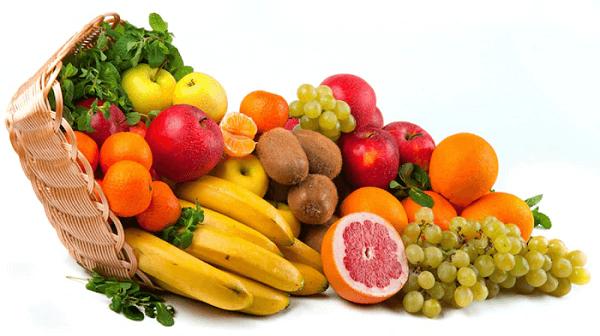
However, some extremely healthy foods are either a bit too costly, difficult to find or something you'd probably only eat sometimes (sardines, for example) to be a regular part of our diets. While diversity is vital for a healthy diet, and we are all for exploring new foods, we sought to select healthy foods that would be the simplest for you to include in your diet. 1. BerriesEvery type of berry is a fantastic source of fiber, which most people don't get enough of. Fiber keeps you feeling full, is beneficial for your heart, and helps keep your digestive system healthy and functioning properly. Make sure to mix it up; all berries are beneficial to your health. When berries aren't in season during the winter, pick up frozen berries (without sugar) and use them in yogurt, smoothies, or porridge. 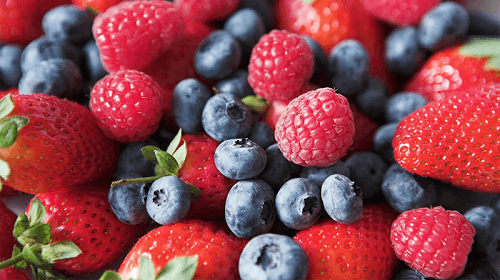
With 8 grams of fiber per cup, raspberries-one of the finest breakfast foods for weight loss-also contain ellagic acid, a substance with anti-cancer qualities. The same amount of blueberries comprises only 4 grams of fiber but is rich in anthocyanins, an antioxidant that may support maintaining memory function as you age. Three grams of fiber and more than the daily required amount of skin-firming vitamin C can be found in one cup of strawberries. According to Copperman, berries offer us a feeling of fullness because of their fiber and liquid content, and feeling satisfied is a crucial component of regulating your diet. You might be able to incorporate fruits like berries in tiny amounts even if you're following a diet that allows for very little carbohydrates, such as the ketogenic diet. For instance, ten raspberries offer 1.2 g of fiber and 2.3 g of carbohydrates. Prebiotics are equally as important as probiotics in maintaining the health of your microbiome, which is the collection of bacteria in your gut. Berries are foods high in prebiotics but not probiotics. According to Binder-McAsey, these meals are high in fiber and feed the bacteria in the gut. According to the Harvard T.H. Chan School of Public Health, a healthy microbiome plays a crucial function in the immune system and guards against diseases that could make you ill. Additionally, she claims that dietary fiber encourages regular bowel motions. 2. EggsEggs, a high-quality vegetarian protein source, may help your meal last longer. About 70 calories and 6 grams of protein are included in one egg. Additionally, lutein and zeaxanthin, two antioxidants that support eye health, are found in egg yolks. In fact, lutein and zeaxanthin are associated with a lower risk of age-related macular degeneration, the primary cause of blindness in adults over 65, according to a study published in PLOS One in 2019. Additionally, lutein may protect your skin from UV deterioration. 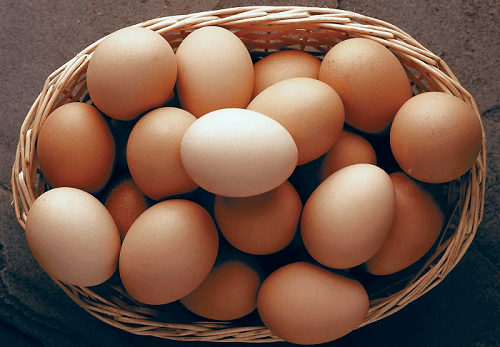
The egg's 5 grams of fat, which is a moderate quantity, is primarily made up of monounsaturated and polyunsaturated fat. Also, it's critical to distinguish between dietary cholesterol and blood cholesterol, which have only a tenuous relationship. The emphasis on dietary cholesterol alone was lessened as trans, and saturated fats were found to have a greater impact on blood cholesterol levels. As a result, the 2015 Dietary Guidelines for Americans no longer advise consuming more than 300 mg of dietary cholesterol per day. Given its history, the nutrition question "are eggs healthy?" has gained popularity. In order to respond to this, it's critical to consider eggs not just on their own but also in the context of the overall diet, especially in light of potential replacement meals (and vice-versa). While sugary, refined grain-based alternatives like sweetened morning cereals, pancakes with syrup, muffins, or bagels may be much worse choices than eggs, other options may be preferable. Although eggs may not be the best breakfast option, they are unquestionably not the worst, ranking somewhere in the center in terms of food choices and risk of heart disease. Keeping egg consumption moderate to low and, whenever feasible, focusing on plant-based protein choices will be preferable for most people aiming to eat a balanced diet. 3. Sweet PotatoThe alpha and beta carotene in sweet potatoes is what gives them their bright orange color. The body transforms these substances into vitamin A's active form, which supports the health of your bones, eyes, and immune system. Additionally acting as antioxidants, these phytochemicals scavenge disease-causing free radicals. Nearly four times the recommended daily amount of vitamin A is found in one medium sweet potato (around 1/2 cup), along with some vitamin C and B6, potassium, manganese, lutein, and zeaxanthin. 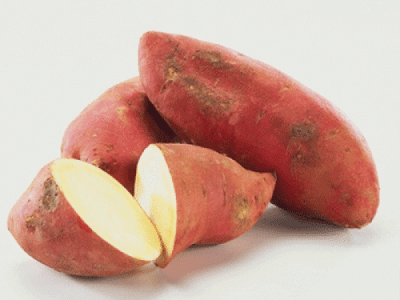
A sweet potato's high potassium content aids in balancing the body's excess sodium levels. Hence aids in controlling blood pressure. (Advice: To get the best benefit, try grilling it rather than frying it and only add a small amount of salt.) Antioxidants are abundant in it, especially Vitamin C. It contributes to the development of immunological cells (WBC), which establish the first line of defense against all types of illnesses. Add some other veggies to it; this will increase the number of antioxidants it contains. One crucial mineral for our eyes is vitamin A. Shakarkand has a large number of them, providing over 66% of the daily requirement for vitamin A. A healthy intake of Vitamin A could prevent a number of eye issues, including age-linked macular degeneration and night blindness. (Recommendation: Other essential nutrients that are beneficial for eye health include zinc, protein, omega-3 fatty acids, and vitamin C. So, in addition to these nutrients, you can eat sweet potatoes.) Together, potassium, magnesium, and calcium support a regular heartbeat and strong blood vessels. Antioxidants also aid in lowering artery inflammation and preventing blockage, both of which contribute to a decrease in heart-related problems. To keep your heart healthy, eat additional vegetables like broccoli, tomatoes, ginger, and garlic. 4. BroccoliYou might have pushed the broccoli around on your plate as a child or tried to feed the dog beneath the table with it. But as an adult, broccoli is a terrific vegetable to prioritize if you're trying to eat more of them. This vegetable is nutrient-dense and delicious in various ways (beyond just covering it in a blanket of cheese). Skeptical? Listen to certified dietitians. 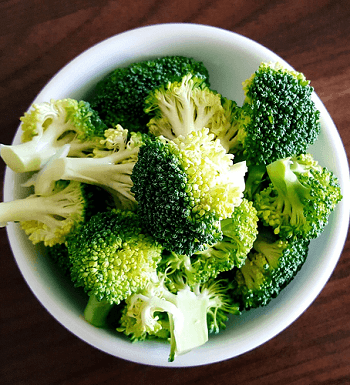
Experts note the presence of vitamin C in broccoli, a crucial ingredient for immune system function. However, vitamin C is crucial for more than just fighting disease. Nielsen (a dietician) claims that the presence of vitamin K in broccoli is another factor that supports the immune system. According to research, vitamin K is crucial for promoting healthy immune system inflammatory responses, she adds. She continues, saying that vitamin K is crucial because it functions as a coenzyme to guarantee proper blood clotting and contributes to the development of strong bones. According to Ingraham (another dietician), one advantage of broccoli that you might not be aware of just by glancing at the nutrient breakdown is that it is abundant in antioxidants, particularly one called sulforaphane. According to her, "this antioxidant is linked to health advantages like lowering inflammation." Antioxidants are crucial for preventing inflammation, which is the cause of many chronic illnesses and malignancies. While broccoli's antioxidant content undoubtedly promotes heart health, Ingraham notes that the vegetable also contains potassium, which is beneficial for the ticker. Since potassium physically keeps the heart beating, it is crucial for cardiovascular health. It also aids in the efficient movement of other muscles throughout the body. Broccoli is mostly water, even though it is obviously rich in numerous nutrients. This keeps the skin moisturized. Nielsen adds that broccoli's high vitamin C concentration is another factor supporting its beneficial effects on skin health. According to her, doing so supports collagen formation and absorption, which prevents wrinkles from appearing as quickly. Lutein and zeaxanthin, two essential minerals for eye health, are found in broccoli. It's one of the main providers of these nutrients. Therefore, it is worthwhile to consistently eat plenty of cruciferous vegetables if you want to do everything you can to preserve your vision well into old age. Like other cruciferous vegetables, broccoli can be prepared in various ways and consumed raw. It can be roasted, baked, grilled, or steam-cooked. Dietitians advise consumers to rest assured that cooked broccoli is still nutrient-rich despite the fact that cooking veggies do somewhat diminish their nutrient density. Ingraham advises boiling broccoli rather than eating it raw if you aren't used to eating meals high in fiber. She claims that doing so makes food simpler to digest and less prone to cause symptoms like gas and bloating. 5. OatsOats are a breakfast mainstay and a powerful superfood. Increased oat consumption is a simple approach to increasing fiber intake and provides a full breakfast. Additionally, plain oats don't have any added sugar and are full grain. Start with plain oats to create a healthy meal or snack, such as blueberry oat cakes, homemade granola to enjoy with fruit and yogurt, or homemade energy bites with peanut butter. 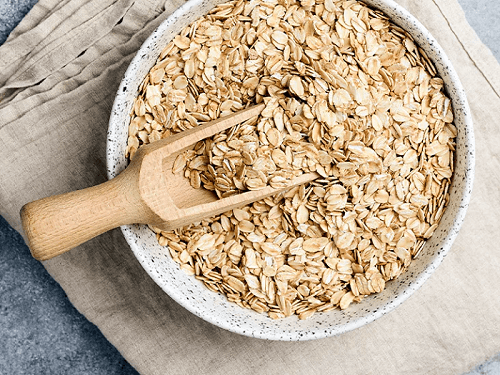
Even though the simple oat lacks the superfood classification (or the corresponding price tag), it is nutrient-dense. Half a cup of oats provides roughly 15% of your daily needs for fiber, which is great for your digestive system. Even more unique forms of fiber, such as beta-glucan, found in oats, support a healthy heart by lowering cholesterol levels. In comparison to many other grains, oats provide more protein. Additionally, because they are a form of whole grain, consuming enough of them is associated with a lower risk of colon cancer, diabetes, and heart disease. These are frequently bought in rolled or quick/instant form. Both provide the benefits of wholegrain oats, but the difference is that fast oats are chopped finely before rolling. Because of this, quick oats cook more quickly and digest more quickly. As a result, eating quick oats won't make you feel as full or satisfied as eating conventional rolled oats will. Some of the benefits of oats are as follows: Prevents cardiovascular disease: According to Dr. Manoj K. Ahuja, dietary fibers in oats help lower bad cholesterol (LDL) without impacting good cholesterol (HDL), which is advantageous for heart disease. Additionally, oats contain plant lignans that help prevent heart disease, including enterolactone. As a result, oats help lower cholesterol and maintain heart health. He continues, "It is an important food that has been shown to be heart-healthy." Prevents Constipation: Oats are an abundant source of soluble and insoluble fiber, which aids in controlling bowel motions and so prevents constipation. Constipation is a problem that can be avoided by consuming oats on a regular basis. Enjoy them as a component of your breakfast. Regulates Blood Sugar Levels: Diabetics should frequently take oats since they help stabilize blood sugar and lower the likelihood of type-2 diabetes. Beta-glucan slows the rise in blood sugar levels after meals and delays the decrease in blood sugar levels before meals due to the high fiber content and complex carbs in this whole food. Lowers Risk of Hypertension: If you have high blood pressure, eating oats every day will help you manage your condition and reduce your risk of developing hypertension. This nutritious treat is available for breakfast as well as lunchtime consumption. Rich Source of Magnesium: Magnesium, which is essential for the creation of enzymes and energy, is also abundant in oats. Magnesium lowers blood pressure, relaxes blood vessels, supports the heart muscle, and prevents heart attacks and strokes. The high magnesium levels nourish the body's proper usage of glucose and the release of insulin. Aids in Weight Loss: Oats are a low-calorie food that slows digestion and increases satiety. Consequently, it will lessen your cravings and aid in your weight loss. The oatmeal ingredient beta-glucan boosts the hormone cholecystokinin, which fights appetite. Enhances Immune Response To Disease: Research has revealed that oatmeal's special beta-gluten fiber speeds neutrophils' arrival at the location of infection and improves their capacity to get rid of the bacteria they locate there. Protects Skin: Oats provide a number of advantages for the skin, in addition to being a calming agent for itching and irritation. 6. SpinachDark leafy green spinach is healthy for the body. The vitamins A, C, and K and some fiber, iron, calcium, potassium, magnesium, and vitamin E are all abundant in spinach. Eating more greens, like spinach, has been linked to a variety of health benefits, including weight loss, a decreased risk of diabetes, a youthful brain, and cancer prevention. 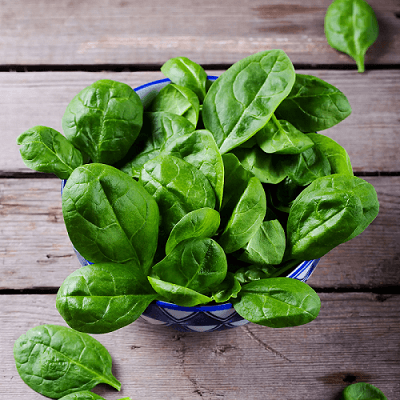
Spinach has long been known for its potential to make you "strong to the end," thanks to Popeye. Although it won't make your biceps swell like balloons, this leafy green is packed with vitamins and minerals, low in calories, and versatile in the kitchen. Eating spinach helps with digestion, lowers the risk of heart disease, and improves blood glucose control in diabetics. It also benefits maintaining healthy skin, hair, and strong bones. According to research, spinach is one of the best food suppliers of magnesium and potassium, two essential electrolytes for preserving human health. Each cup offers a staggering 839 mg of potassium (cooked). Comparatively, a cup of sliced banana has around 539 mg of potassium. Potassium has been linked to a number of positive health effects, including "protection against loss of muscle mass, maintenance of bone mineral density, and reduction in the production of kidney stones." Only 2% of adults in the United States consume the recommended 4,700 mg of potassium daily. A small amount of spinach may not provide much fiber, but if you live the spinach lifestyle, eating more of the greens will result in a higher fiber intake. Enough fiber in your gut nourishes the beneficial bacteria required for a balanced microbiome. According to a study, spinach actually includes a particular sugar called sulfoquinovose that has a distinct function in your GI system. One of the most prevalent gut microbes in healthy individuals, E. rectale, grows when sulfoquinovose is present. Although not everyone is at risk for hemophilia, which causes blood to not clot as it should, everyone can benefit from vitamin K, a substance that helps in the body's ability to heal itself after a cut. 7. TeaThere are many tea drinkers in the world. Many people only like the taste. But according to recent studies, those who drink tea may live longer than those who do not. 
Tea is thought to have beneficial components that lower inflammation. According to earlier research from China and Japan, there are several health advantages to drinking green tea. Black tea, according to scientists, may offer comparable advantages. Researchers from the National Cancer Institute of the United States conducted the investigation. They looked at data obtained over a period of up to 14 years about the tea consumption habits of over 500,000 adults in Britain. In Britain, black tea is the most popular variety. According to the study, two or more cups of tea per day are associated with a modest benefit: a nine to thirteen percent lower risk of dying from any cause than non-tea drinkers. The results of the study were released in the Annals of Internal Medicine. According to the researchers, study participants with heart disease continued to have a lower mortality risk. Researchers asserted that there was no conclusive evidence linking cancer deaths to mortality. Researchers were unsure about the cause. But the study's lead author, Maki Inoue-Choi, speculated that there may have been too few confirmed cancer deaths to count. The Camellia sinensis plant uses various techniques to make green, black, oolong, and white tea. Polyphenols are one of many ingredients in tea. According to specialists at the U.S. National Institutes of Health, polyphenols are assumed to be the cause of the health advantages that tea, particularly green tea, has long been associated with. According to reports, green tea can help people lose weight, boost mental function, and relieve headaches and digestive issues. Additionally, studies on green tea's potential to prevent cancer and heart disease have been conducted. Your skeleton may become stronger as a result of drinking tea. According to a Japanese study that followed 498 women for five years, postmenopausal women who frequently drank black tea had increased bone mineral density in the hip and lumbar spine. There is substantial evidence that black tea can help prevent heart attacks, according to a 2018 article in the journal Biomedicine and Pharmacotherapy. This may be because black tea's polyphenols aid in blood vessel relaxation, which prevents blood vessels from contracting. The bulk of the catechins in green tea, known as epigallocatechin gallate (EGCG), has been shown in tests to lower LDL (bad) cholesterol. EGCG might also reduce bodily inflammation. According to Purdue University research, adding a slice of lemon to green tea may help the beverage's beneficial ingredients survive digestion. Although the combined effects of green tea's high catechin content and caffeine may not be sufficient to help in weight loss, they can increase mental clarity and even speed up calorie burning. 8. NutsThe nuts taste great. Everyone enjoys having a snack of peanut butter cookies or a dessert of nutty trail mix, whether they are young or old. Since nuts are sweet, salty, and satisfying, some individuals see eating them as an indulgence. On the other hand, nuts are a fantastic health food and a crucial component of a balanced diet. 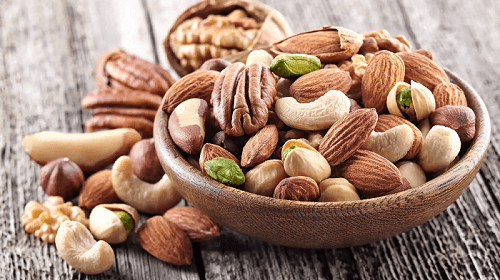
Although it is well known that nuts contain a lot of fat and calories, this is one of their health benefits. Monounsaturated fats, referred to as "healthy fats," make up most of the fats in nuts. The health risks associated with these naturally occurring lipids are lower than those associated with saturated fats and other fats included in processed diets. Nuts are also essential to numerous well-liked diets. The ketogenic diet consists of consuming a low-carb, high-fat, and moderate-protein diet in order to make your body into a fat-burning machine. Due to their fatty composition, walnuts and macadamia nuts are excellent keto diet additions. Nuts are a significant natural protein and lipids source in the well-known paleolithic diet. Nuts are a fantastic supplement to other diets, including vegetarianism, veganism, and raw food diets. The health advantages of including nuts in your diet should be taken into consideration by anyone trying to lose weight or simply live a healthy lifestyle. Recent research from the PREDIMED trial suggests that those at high risk for type 2 diabetes or metabolic syndrome benefit from a Mediterranean diet that includes one serving of nuts per day to prevent heart attack, stroke, or death from other cardiovascular causes. Additionally, according to PREDIMED statistics, consuming more than three servings of nuts per week lowers the chance of dying from any cause, especially when combined with a Mediterranean diet. Subjects who regularly ate total nuts and walnuts had a decreased risk of cancer-related mortality. Nuts are linked to several different types of nutritious components. Numerous vitamins, proteins, minerals, and other chemical substances have been shown to be abundant in nuts. Regarding detailed nutritional information, there are approximately 173 calories of mixed nuts in an ounce or 28 grams. Each ounce of mixed, unsalted nuts contains around 16 grams of fat, of which 9 grams is monounsaturated fat. Each ounce of nuts contains 5 grams of protein, 6 grams of carbs, and around 3 grams of fiber. Omega-3 fatty acids, also known as alpha-linoleic acids, are polyunsaturated fats that are commonly believed to be healthy for the human body's function. Nuts are an excellent source of these fatty acids. It is known that the beneficial acids found in nuts have unique anti-inflammatory characteristics that lower the risk of breast, colon, and prostate cancer. A healthier bowel movement is encouraged by nuts' high dietary fiber content, which also lowers the risk of some gastrointestinal cancer types. One of the nuts' most significant health advantages is their ability to support cardiovascular health. The majority of nuts have been discovered to be excellent suppliers of HDL cholesterol, or "good cholesterol." LDL, or harmful cholesterol, is a type of cholesterol that lowers blood levels of LDL. Additionally, it makes sure that the risky cholesterol doesn't adhere to the artery and blood vessel walls, preventing blood clots and other major cardiovascular problems. The essential amino acid L-arginine, which is abundant in nuts, provides another benefit to eating them. Relaxing blood vessels eases any constrictions or contractions. Better blood flow through the arteries and a drop in blood pressure result from this. The body can benefit greatly from the fibers found in nuts in yet another way. Due to the high fiber content in nuts, obese people can be prevented from overeating by making them feel full and blocking the release of the hunger hormone ghrelin. The majority of diet plans include some type of nut consumption. Nuts are a fantastic addition to any diet because they are low in calories and a terrific source of healthy fats, vitamins, and proteins. 9. OrangeOranges are a fruit that is often overlooked. One large orange (or a cup of orange juice) provides the recommended daily allowance of vitamin C for an adult. Vitamin C is a potent antioxidant that helps protect cells from free-radical damage and is essential for the production of collagen, which firms the skin. Vitamin C is also essential for the production of white blood cells and antibodies that fight infections. Oranges are rich in folate and fiber as well. 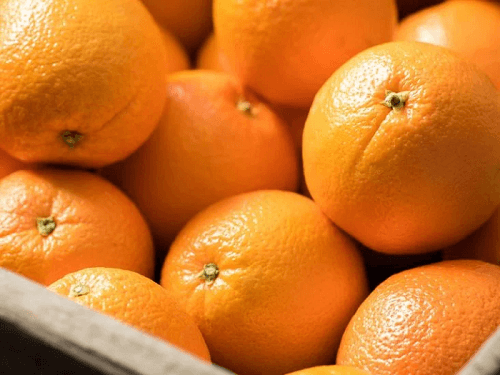
Oranges' high vitamin and mineral content make them beneficial for your heart and circulatory system. Through its impact on sodium or salt, potassium, which is included in oranges, may help control high blood pressure. Your body excretes more sodium through urine when you consume more potassium. Additionally reducing blood pressure, potassium also reduces tension in the blood vessel walls. Although an orange only has 250 mg of potassium per serving, the daily recommended intake is 4,700 mg. You must also obtain potassium from other sources in addition to orange if you want to lower your blood pressure. Other benefits of oranges are as follows -
Oranges are a great snack if you're aiming to achieve or maintain a healthy weight because of their high fiber content. Fiber-rich foods are more filling and support a healthy digestive tract. Bonus: They satisfy sugar cravings and are a healthy substitute for sweets because they are delicious yet relatively low in calories. Fruit is, after all, nature's candy. Orange juice and whole oranges share many nutritional advantages, but there is one area where they diverge significantly: fiber content. Orange juice is less filling since it has significantly less fiber than an orange in its entirety. For instance, a whole orange contains 3 g of fiber, compared to 0.37 g in 1 cup of orange juice. Additionally, it is simple to consume a lot more orange juice than you would by eating entire oranges. So, although orange juice and whole oranges both have about the same amount of sugar, drinking orange juice is likely to result in more sugar consumption overall, and because it has no fiber, it won't help you feel full for very long. The orange peel is edible and can provide some health benefits, despite the fact that most people don't eat it. Flavonoids are a class of chemicals found in orange peels. According to research, these substances could be able to slow the growth of cancer cells. Additionally, they might inhibit cancer cells' negative characteristics, like their ability to build new blood vessels covertly, migrate to various places of the body, and resist cell death. Vitamin C, which is also present in orange peels, may have some advantages for skin health. Vitamin C may defend the skin against UVB sun damage and lessen the skin's inflammatory response, according to a 2018 study on human skin cells. Diffusing orange essential oil in a space produces a pleasant aroma and may have antimicrobial benefits. A 2019 laboratory study discovered that orange essential oil, both by itself and in combination with starch, may help combat various bacterial types. In order to increase shelf life and assure food safety, the orange essential oil may be effective as a natural preservative. In a 2019 study, researchers also looked at how orange essential oil affected the microorganisms in mice's intestines. They discovered that limonene, linalool, and citral, three components of orange essential oil, might boost the number of probiotic bacteria in the mice. An increase in probiotics may result in a more effective digestive system because these helpful bacteria are essential for healthy digestion. 10. YogurtProbiotics, or "good bacteria," found in yogurt support the health of our digestive systems. Also abundant in calcium. Nearly half of the daily required intake of calcium is delivered by just 1 cup of yogurt, along with phosphorus, potassium, zinc, riboflavin, vitamin B12, and protein. When possible, choose plain yogurt and go for Greek style for an even greater protein boost. Yogurts with flavors frequently contain a lot of sugar that adds calories without any nutritional value. 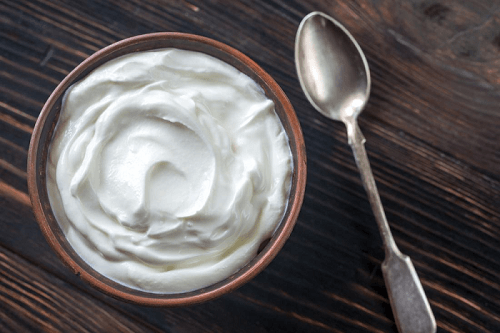
Yogurt is a delightful dairy snack that is chilled, creamy, and available in a variety of flavors. For both children and adults, it's a simple addition to a healthy dietary regimen. High-quality protein, calcium, and potassium are all included in yogurt. A few versions also include live, active probiotic cultures, sometimes referred to as "good bacteria," which may improve gut and immunological health. Here is the scoop if you love yogurt or are just interested in finding out more about yogurt and its history. Yogurt's popularity is in part due to its nutritional value. Yogurt contains critical elements like protein and others like calcium, zinc, and B12 that are crucial at different stages of life. The majority of yogurts contain living, active cultures, and some also contain probiotics, or good bacteria, which may support immune function, fight off infections, and prevent disease. By assisting in the digestion of lactose and making it easier to digest if you have a lactose sensitivity, those beneficial bacteria can provide a number of health advantages. Additionally, yogurts that have been strained, such as Greek- and Icelandic-style, contain even less lactose, making them a better option for people who are lactose intolerant. In India, yogurt is frequently used to cool the palate and balance the heat of spicy foods. Curry, lassi, a smoothie-like beverage. Kadhi, a yogurt-based stew, and raita, a condiment served with most meals and made from full-fat yogurt that has been blended with spices, herbs, fruits, and/or vegetables, all feature prominent components. Yogurt has a lot of uses. You can have it as a snack or for breakfast, lunch, or dinner. It can be used in savory or sweet dishes, such as sauces, dressings, and dips, as well as smoothies, yogurt, frozen pops, puddings, and other desserts. And there is a tonne of flavors to select from when it comes to nibbling! Yogurt lovers have so many good reasons to enjoy it!
Next TopicTop 10 Hindi movies
|
 For Videos Join Our Youtube Channel: Join Now
For Videos Join Our Youtube Channel: Join Now
Feedback
- Send your Feedback to [email protected]
Help Others, Please Share









